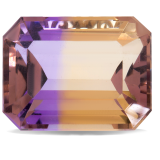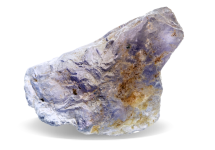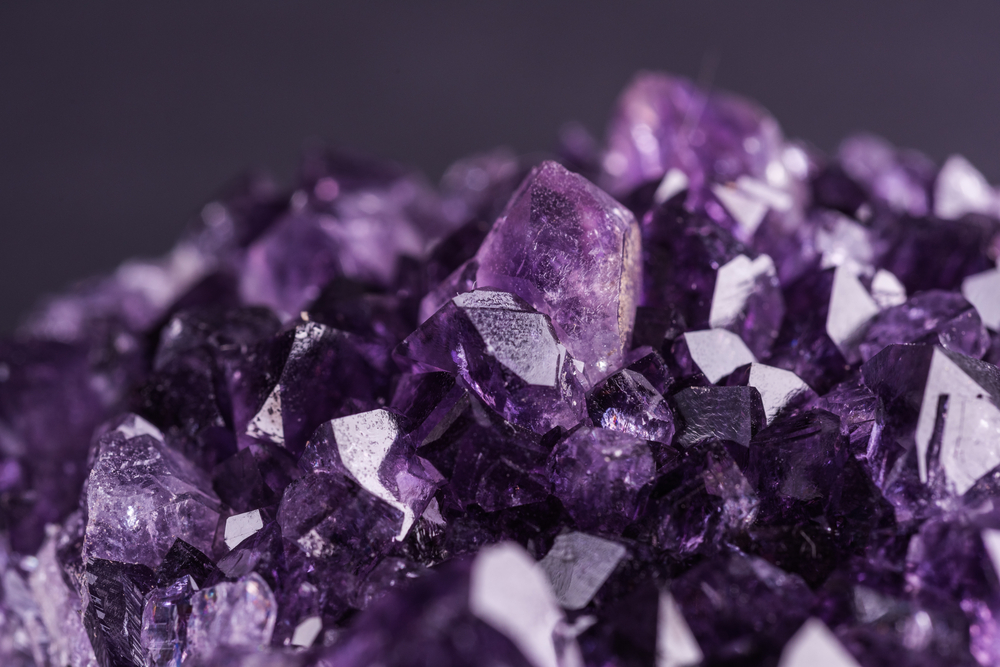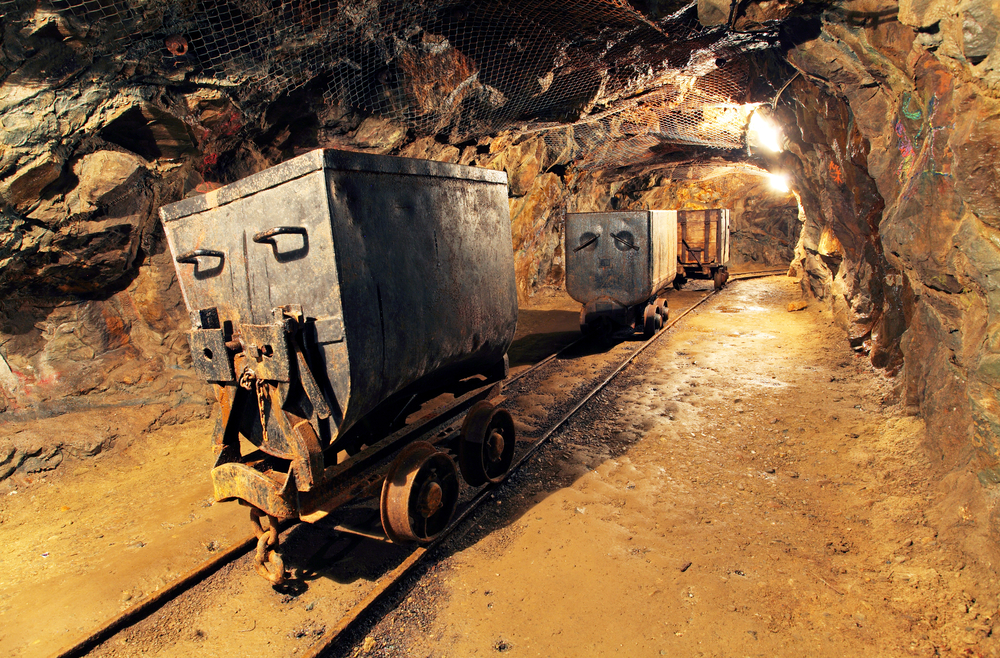Ametrine


This transparent quartz has colors of both amethyst and citrine, and is called ametrine or amethyst-citrine.

Ametrine Description
Transparent, bicolored quartz with the colors of both amethyst and citrine in the same gem is called ametrine or amethyst-citrine. The contrasting colors give it an intriguing appearance.
Fine ametrine shows medium dark to moderately strong orange, and vivid to strong purple or violetish purple. Larger gems, usually those over 5 carats, tend to show the most intensely saturated hues. Dealers look for an attractive half-and-half distribution of each color, with a sharp boundary between the two colors at the center of the fashioned gemstone.
Ametrine is often cut as a rectangular step cut because that style nicely displays the bicolor effect. Cutters try to emphasize both colors equally.
Gemstone Details
Ametrine Gemstone as rough


Cutters sometimes fashion ametrines as mixed cuts or brilliant cuts and use internal reflections to mingle the amethyst and citrine colors. Ametrine is also popular in free-form or fantasy cuts.
There’s only one commercial source of natural ametrine: a deposit in eastern Bolivia, close to the Brazilian border. Legend has it that a Spanish conquistador discovered the location in the 1600s, but it was lost for more than three centuries. Ametrine began appearing on the market again during the 1970s. The mine, the Anahi, also produces natural amethyst and citrine.
Amerite History and Lore
The world’s only commercial source of ametrine is the Anahi mine in southeastern Bolivia. Legend has it that a Spanish conquistador discovered the mine’s location in the 1600s and introduced the gem to Europeans when he presented several specimens to his queen. The mine had been given to him as a dowry when he married a native princess named Anahi.

After that, the mine was lost for more than three centuries. Rediscovered in the 1960s, the mine’s ametrine began appearing on the market again during the 1970s. Today the mine, named Anahi for the legendary princess, also produces natural amethyst and citrine.
The mine area is remote. Travel to and from the mine is limited to a flight in a small airplane or by a combination of roads and boats. Some supplies and personnel travel to and from the mine by air. Supplies and mine production move by boat. It’s not hard to imagine why the mine’s location was lost for centuries.
UNIQUE
No two ametrines look the same because the colors in each gem combine in a unique way.
RARE
There’s only one commercial source of ametrine, so the supply is very limited
A CUTTER’S INSPIRATION
Cutters delight in finding ways to maximize the beauty of ametrine.
COLOUR
Fine ametrines show beautiful contrast between their orange and purple shades.
CLARITY
Faceted ametrine generally has no eye-visible inclusions.
CUT
Unusual cutting styles add drama to ametrine’s unique color combination.
CARAT WEIGHT
A wide range of sizes is available. Large material is popular with gem carvers.